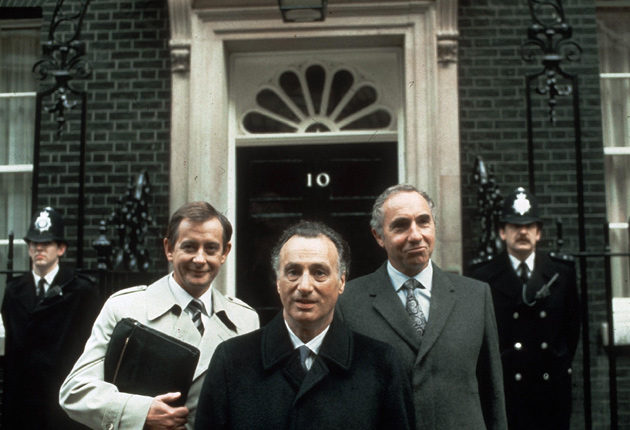London August, August 5, 2018
Migrants exploited by human-traffickers drown at sea by the thousands; the crisis threatens the European Union’s “ ever closer union” aim of federalism as the leaders failed in last month’s summit to find a solution. 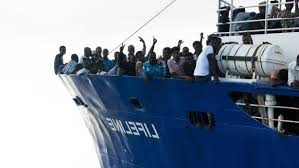 Adel Darwish suggests a long term strategy to solve the migrant crisis, which would not only save lives, but will also reduce the number of migrants by 90% and lead to economic prosperity in sub saharan African nations. The strategy depends on cooperation and coordination between the EU, the UN migration and refugee agencies, North African members of the Arab League and The African Union. ©
Adel Darwish suggests a long term strategy to solve the migrant crisis, which would not only save lives, but will also reduce the number of migrants by 90% and lead to economic prosperity in sub saharan African nations. The strategy depends on cooperation and coordination between the EU, the UN migration and refugee agencies, North African members of the Arab League and The African Union. ©
“Give a Man a Fish, and You Feed Him for a Day. Teach a Man To Fish, and You Feed Him for a Lifetime,” the contested origin, thought to be Chinese, saying come to mind as why migrants in their thousands take the dangerous journey to try to reach the promised land in Europe. But another saying also comes to mind, “Turkeys won’t vote for for an early Christmas “, which perhaps explains why very few, if any, thinking of a long term strategy to deal with this crisis rather than managing it, which seems to have become an industry or a taxpayer funded job-creation-scheme for middle class liberals or both.
“Give a Man a Fish, and You Feed Him for a Day. Teach a Man To Fish, and You Feed Him for a Lifetime,” the contested origin, thought to be Chinese, saying come to mind as why migrants in their thousands take the dangerous journey to try to reach the promised land in Europe. But another saying also comes to mind, “Turkeys won’t vote for for an early Christmas “, which perhaps explains why very few, if any, thinking of a long term strategy to deal with this crisis rather than managing it, which seems to have become an industry or a taxpayer funded job-creation-scheme for middle class liberals or both.
The German based non-governmental charitable organisation LifeLine was criticised by the Italian government and by the French President Francois Macron. The French and the Italians accuse NGOs like Life-Line of exasperating the crisis by acting as ferry service for migrants to Europe, thus enabling human traffickers to exploit them and endangering their lives. The captain of the Life-Line ship (carrying the same name) was arrested when the ship docked in Malta on 28 June, charged with endangering life and flouting maritime regulations. The ship sailed several days carrying 233, mostly African, migrants in crowded conditions, wandering several days after Italian and Maltese authorities refused permission to dock.
The Life-Line picked the migrants 12 miles off the Libyan coast instead of letting the Libyan coastguards take them to safety.
The nearest dry-land, where survivors should have been taken, was Libya, then Tunisia with maximum two hours sailing; yet the Life-Line sailed to Italy with overcrowded deck adding to the refugees misery.
Justifying the action of the ship’s captain the the chairman of Germany based LifeLine told the BBC(Monday 2nd July 2018 at 06:50:22 ) his organisation didn’t approve of the “political conditions” in Libya and “the violation of human rights” there.
It was an admission of the organisation, exceeding the declared humanitarian mission for which it collects donations and receives subsidies, wandering into political activities. .
Critics of the EU policies on migration say NGOs like life-line were helping turning what started as humanitarian mission into an industry.
Agencies run by highly paid executives were created by the EU to handle illegal immigrants after arriving in Europe. But none have a long term strategy. This played into the hands of human traffickers and organised crime gangs on the north African coast working with corrupt officials.
Milking the hopes of desperate economic migrants, criminal gangs charge them between £3000 and £6000 each and even €10,000 reported in some cases. Human traffickers place them on over 160% capacity boats and rubber dinghies not fit for the journey.
The human traffickers deliberately use boats not designed for the long voyage and overload it with migrants as part of their cynical tactics.
They know that when the overcrowded boats start to take water and send SOS messages, ships, mostly managed by NGOs like Life Line will save them, thus completing the journey they started from Africa.
Smugglers provide their collaborators among migrants with mobile telephone numbers of rescue boats operated by NGOs or Italian coastguards to call when boats start to take water.
Turkeys do not vote for early Christmas, and bureaucracy, is a self-generating system making its survival an aim rather than means.
To deal with migrants, the EU created agencies run by highly paid executive. Those agencies, alongside, NGOs, inadvertently created an industry feeding on migrants placing themselves in danger, while w their activities encourage human traffickers to organise mor boatloads of migrants.
The criminal gangs grow rich and thousands drown in the sea while the European Taxpayer picks the bill. It’s impossible to know how many people have drowned in the Mediterranean. We can only count victims of reported incidents, those not reported, or spotted are impossible to count.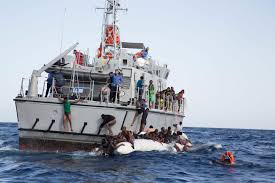
On 30 June the Libyan authorities reported over 200 deaths off the Libyan coast. To give an idea of the scale, a day earlier only 16 survivors rescued of a boat carrying 130 migrants.
It also near impossible to estimate the cost, per head ( ie single immigrant) to European taxpayers of rescuing emigrant by Coast Guard boats, EU countries navies or NGO boats taking him to Europe placing him
This is not to mention the overall cost of processing his case and financing him for few weeks or months to come. The EU commission do not publish those figurers and when challenged by MEPs or the media, they are always reluctant to release exact figures of the average cost of saving one immigrant from the water and taking him to a first reception centre, or the subsequent cost of keeping migrants per month (there are 160,000 illegal immigrants some have been on those centres for over three years, and whose statutes not clear, while the EU commission trying to distribute them among member states refusing to take Brussels quotas.)
The estimated cost of day one of receiving sunk -boats survivors in reception centre is €16,000 per head. The German government say their share of the cost was €12,000 per head per year; making it near €2 bn to German taxpayer alone for one year of the known 160,000 waiting allocations. However the only semi-accurate figures the commission reluctantly shared were cost of deporting illegal immigrants to their home countries. The figures vary between €5800 and €90,000 per head. The operation of rescuing migrants from downing is stage three of the Human trafficking journey.
The first stage is the treacherous journey from Sub Saharan Africa and the Sahel region into North Africa cost, or the Spanish enclaves near Morocco. 
Stage two by traffickers was to place them in boats that cant sail no further than 40 miles before starting to take water or capsizing, letting western NGOs and EU finish stage three .
Solutions I suggested, four years ago, ( and for which I was attacked as providing “ colonial times solution” ) was to stop those people from being exploited by criminal gangs in the first place, and save lives plus improve their economic conditions in their own home countries.
Give a man a fish or teach him how to fish?
Provide an African immigrant from a sub-Saharan country ( where GDP per-capita is as little as $670.7- world bank figures) with the value of €10,000 to €20,000 , under an EU guided investment programme, which should include a decent home with access to clean water; you’d feed him and a dozen around him for life.
In short create more attractive conditions at their country of origins, while removing the phantom magnet attracting them to their death by drowning.
Financial help as part of a supervised programme and supporting the start of business with trade, agricultural, farming or dairy or any other production would change people’s lives, create employment and generate economic boom.
It doesn’t only make economic sense since this investment programme would be cheaper than managing, or even deporting illegal immigrants, but also to right an historic wrong.
It is the European Union protectionist trade policy which has contributed to their poverty in the first place.
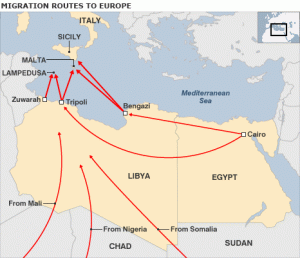 In the short and the medium term, an urgent plan is needed to deal with the thousands who have already paid the life savings, or borrowed money to traffickers and already on the North African coast hoping to reach Europe, many of them would die on the way.
In the short and the medium term, an urgent plan is needed to deal with the thousands who have already paid the life savings, or borrowed money to traffickers and already on the North African coast hoping to reach Europe, many of them would die on the way.
A long-term multifaceted strategy needed. Plans deploying diplomacy, security, military force, economic and physical infrastructure is required. It should be put into action without delay, and all aspects must be carried at the same time.
An essential part is to establish processing centres; to deal with the thousands of migrants who already made the journey and arrived mainly in Libya and to a certain extent Tunisia smaller numbers in Egypt and Morocco to reach part of political Europe you graphically in Africa open brackets begin bracket, namely the Spanish enclaves of Ceuta and Melilla .
Those centres would be run by specialists from the local nations of north Africa and the sub-Saharan Africa in association with Europeans including doctors, social workers psychiatrists, teachers, diplomats and lawyers and of course security.
The different layers of this strategy have to run parallel in order to stem the migrants’ tide. Economic programmes needed, not only for the countries from which migrants came, but along the long route they take which passes through several African countries.
Other help centres to be set along the route taken by migrants going north. This is a role for the military. Establishing the processing centres in the north African countries; and a coordinated military operation run by Air Force and naval forces along the coast of north Africa in cooperation with EU.
It is essential to emphasise that all facets and layers of this have to be coordinated and executed with military precision at the same time not on stages.
A military and security force should be set up to take a strong action against human traffickers destroying all possible boats and facilities that would enable and facilitate the operation of the smugglers as well as trying to deal with corrupt officials. This also needs a budget to compensate those temporarily affected by the military action against smugglers and human traffickers
Affected communities needed to be compensated generously to ensure their cooperation. This period, if executed successfully, shouldn’t take more than 18 to 20 months maximum.
The strategy of establishing processing centres requires delicate diplomacy with African nations, the African Union (AU), the League of Arab nations State (AL) and the UN refugees and migrations organisations.
North African nations mustn’t see it as an erosion of their national sovereignty.
Diplomacy, backed by action, should convince the North African nations of the unprecedented economic benefits in working as partners with the EU in this strategy by accepting the processing centres on their soil.
The processing centres must be geographically of the choice of the host countries and under their jurisdiction but European standard of human rights must be observed. An economic leverage can be persuasive. Sensitive to their public opinion the North African government would prefer setting those centres as far as possible from their populations centres. A mutually beneficial a choice since this is a long term strategy which could spin over two generation; creating infrastructure is always welcomed by the host nations.
Building hospitals and schools for migrants’ children, social, cultural and sport centres, and include the host nations children in the wider vaccinations and education programmes, would be the carrot to persuade the host nations who will inherit this infrastructure well equipped. It would create employment in the host countries in all stages; both during building the infrastructure and in the security apparatuses to combat human traffickers and also along the migrants’ routes for the security and help centres.
The protection and detection centres run by the military along the route, in countries like Libya, Algeria, Niger, Chad, Mali, Burkina Faso, Mauritania, Sudan and Senegal. The French are the only nation, realistically, with enough military assets and experienced troops in the Sahel region, already engaged in fighting terrorism. The Germans can provide more equipment, contribute money, while the RAF can do long-distance logistic support and carry out missions.
The processing centres in North African nations would be run by committees from the host 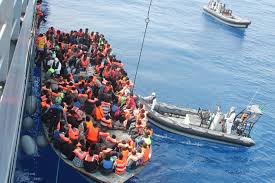 countries the UN and European human rights lawyers from NGOs as well as diplomats representing the countries of origin and the countries of asylum-seekers, with AL and AU.
countries the UN and European human rights lawyers from NGOs as well as diplomats representing the countries of origin and the countries of asylum-seekers, with AL and AU.
Those qualify for refugee status according to UN definition would be processed to live in safer countries. The economic migrants would be given opportunities whether to work in those centres if employment is available or in the help and security along route or giving money on condition it would be invested under supervision within a settlement program in their country of origin..
Without this strategy there’s no long-term solution but we will carry-on in this vicious circle wasting money encouraging more people to become victims of human traffickers, more lives lost at sea, and most dangerous and destabilising for Europe .
But this depends whether EU commission are willing to go ahead with this strategy.
